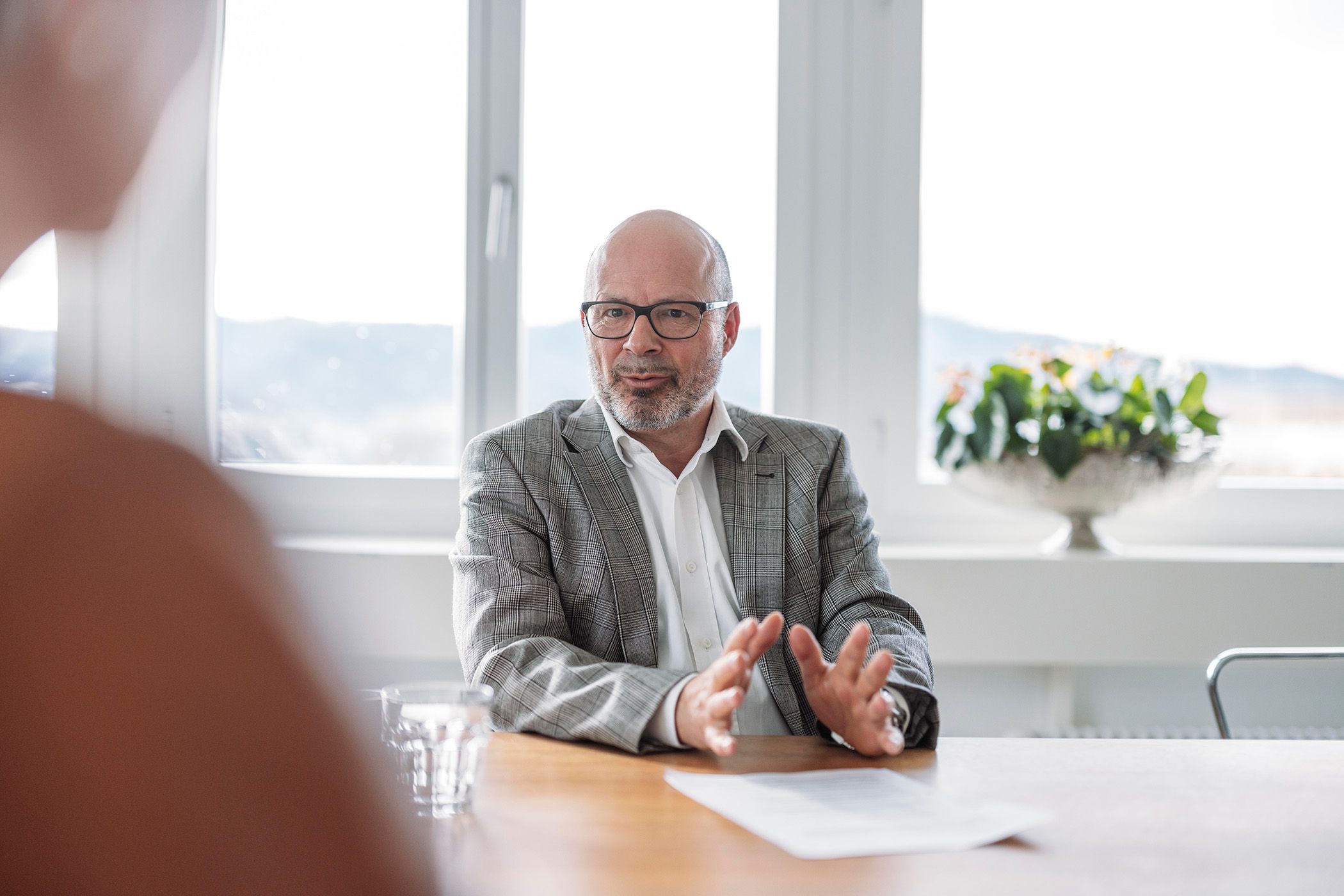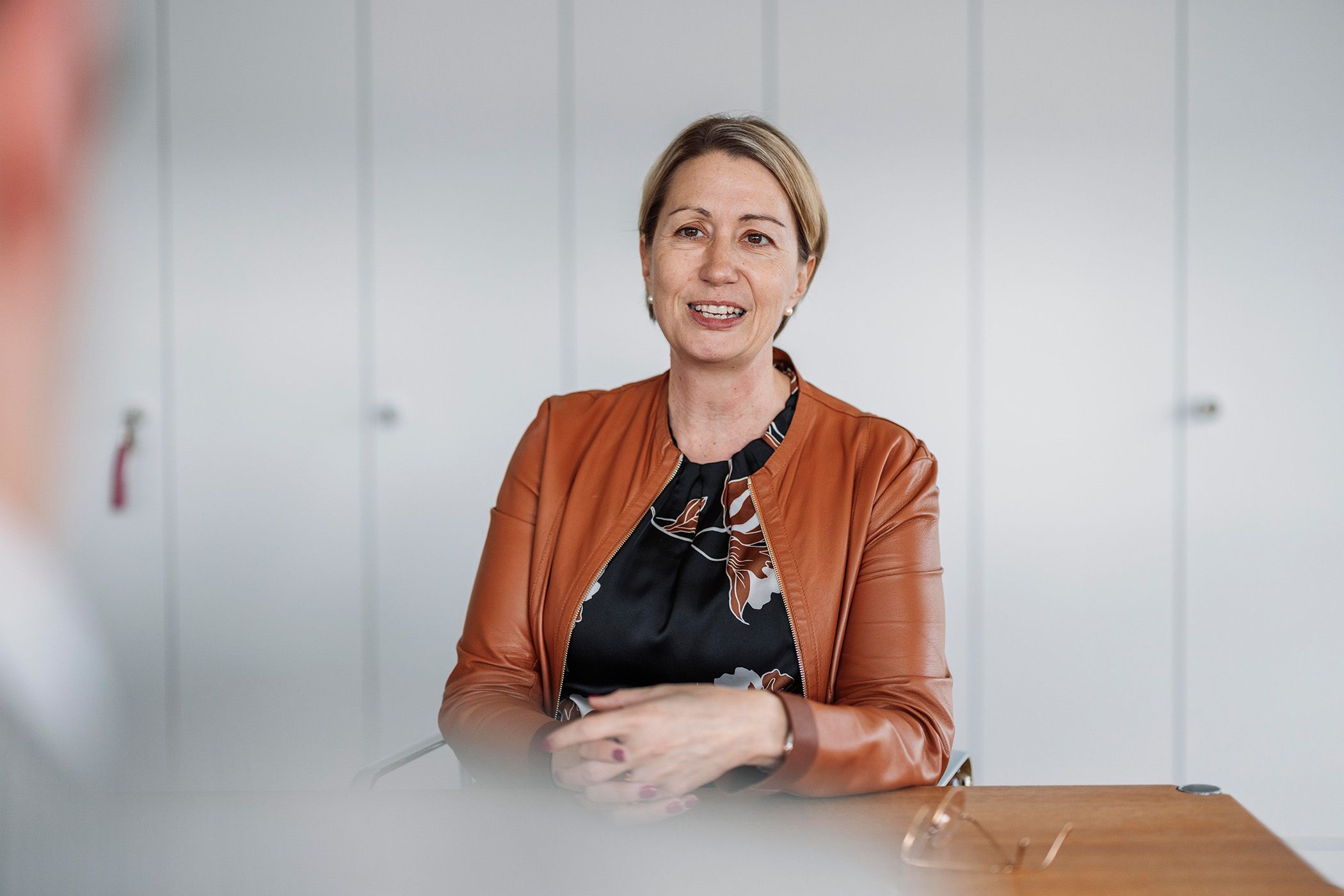Andrea Rytz has headed up Schulthess Klinik in Zurich as CEO since 2016. Schulthess Klinik is one of Europe’s leading orthopedic clinics with about 1,100 employees, over 9,600 operations and around 131,000 outpatient contacts per year. Prof. Dr. Reto Eberle met with the inspiring and likeable Andrea Rytz to discuss the importance of a good corporate culture for leadership and how she balances her duties as CEO and board member.
Prof. Dr. Reto Eberle: You are regarded as a very innovative leader. What does innovation mean to you and what inspires you?
Andrea Rytz: That’s a difficult question to start off with... I wouldn’t describe myself as innovative. In my role as CEO, I maintain very close contact with our employees. I like to listen to people and understand what’s bothering them.
I come from a hospital background, I’ve never worked in any other professional environment. So, I’m always asking myself: “If I were a staff member myself, what would help me, what would I find useful?” I can then draw conclusions on how to further develop our processes and structures.
One big topic at the moment is the generations Y and Z. What can we do to integrate young people into our company and at the same time give them space to develop? My role in innovation management is to identify issues at an early stage and to come up with an unconventional solution now and then.
In medicine, on the other hand, innovative ideas often come from the chief physicians. Then it is up to the board to decide which medical advances and discoveries should be implemented and integrated at Schulthess Klinik.



What role do the concepts of sustainability and diversity play in the day-to-day operations of Schulthess Klinik?
Sustainability is an issue that has not yet been consistently addressed in the day-to-day running of the clinic. We are doing a great deal bottom up, but have a long way to go before we have a comprehensive view of things.
We recently cleared the first hurdle for ISO 14001 certification. Among other things, we had to analyze all our machines and equipment based on their electricity consumption and show how we can reduce our energy usage. This is a huge undertaking because our machinery pool is very large.
We addressed the topic of sustainability and, in a very broad discussion, defined goals for what we actually want to achieve and how we’re going to get there. Particularly in external communications, it is important that we don’t just pay lip service to these goals and measures, but actually implement and embrace them. The drive must come from an intrinsic awareness of ourselves and not be imposed by regulators or legislators.
Let me give you just one small example: an analysis of our waste management has shown that one and a half 110-liter bags of qualified waste are generated per patient in the operating room, which could be returned for reuse in a circular process. Today, these materials are indiscriminately declared as waste and incinerated.
A major personal concern of mine, however, is also the handling of food in the clinic. It is important to me that we favor regional products and that we know the producers. And, of course, our employees come up with a lot of good ideas and suggestions, and we’re happy to hear them. I like the momentum we’re seeing in this area.
I need to have a sober and business-oriented view of the clinic processes.

In your opinion, what is the recipe for successful cooperation between the executive committee and the board of directors?
There are a lot of human elements involved. If a CEO feels bothered by the board of directors, then we have a problem. That happens more often than you might think. Then the board of directors is perceived only as a supervisory and control body and not as a strategic and supportive partner.
At least one person on the board should have – and maintain – a strong and direct connection to the CEO. I think it’s important that a CEO also knows how decisions are made on the board.
The most successful board chairs I’ve known have always spent a lot of time on interpersonal relationships and discussions. The model of the traditional patron can make a difference again in our fast-moving economy – I would like to be such a patron.


